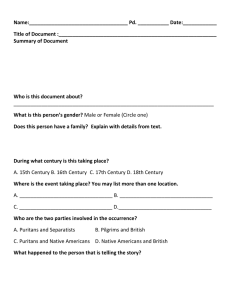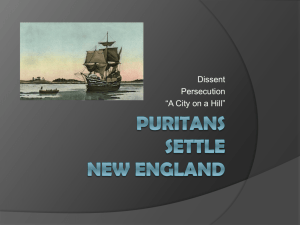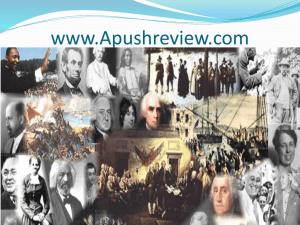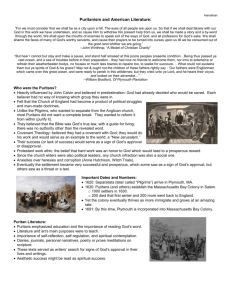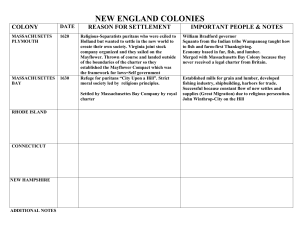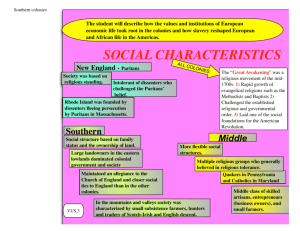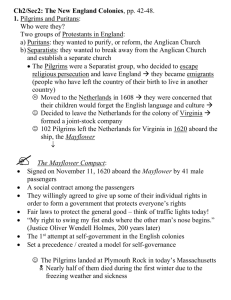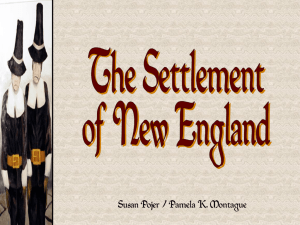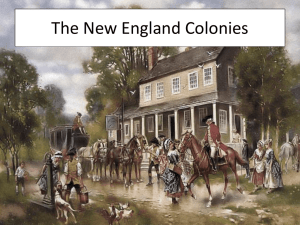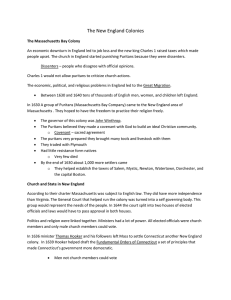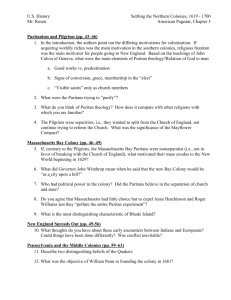AP US History
advertisement
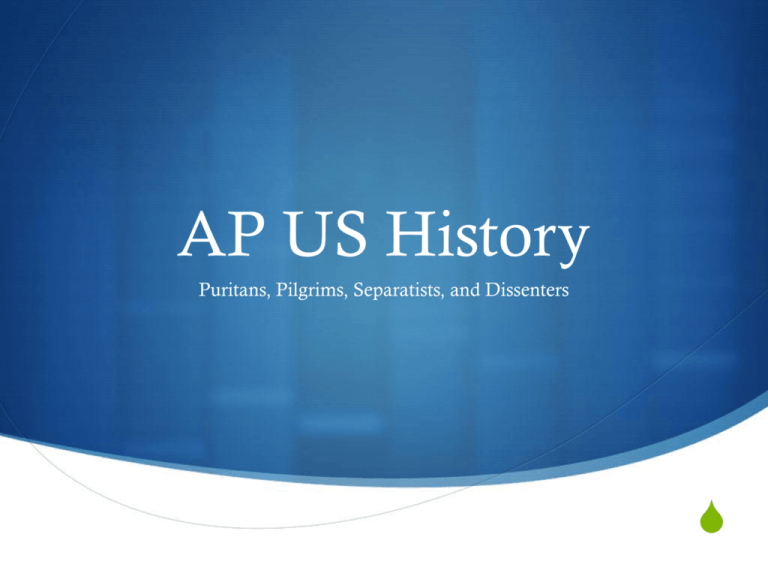
AP US History Puritans, Pilgrims, Separatists, and Dissenters S Church of England S Aka the Anglican Church S Founded in 1534 by King Henry VIII S King tried to divorce his first wife (Catherine of Aragaon) but the Pope refused to dissolve the marriage S The King, angry, broke away from the Roman Catholic Church and created the Church of England S The Anglican Church remained similar to the Catholic Church and Puritans protested Puritans S Encouraged by the teachings of John Calvin, the Puritans sought to “purify” the Anglican Church by ridding it of ceremony (like the Catholic Church) S Believed that they needed to remain in the Church to stand as examples and purify it from within S Once the Puritans left England for N. America, they no longer remained active in the Church of England S Known for work ethic and moral “compass” Pilgrims S Known as separatists S Believed they had to leave the Church of England to escape a life they did not believe in S First group set out in 1620 aboard the Mayflower for Virginia S Pilgrims set sail having agreed to work for 7 years for the Virginia Company in exchange for a share of the profits S Ship landed at Plymouth Bay and 1st govt. document drafted was Mayflower Compact (separation of church and state, rule of the majority current democratic principles) Nonseparatists S Next wave of Puritans arriving in New England in 1629 S Came due to oppression and persecution by English crown S While in England believed they had to remain within the Church of England to reform it S This wave called “Great Migration” of 1630s (MA Bay Colony) S Most famous governor was John Winthrop (City on a Hill) S Only males allowed to vote, only members of Congregational Church allowed to participate in religious ceremony Dissenters S Anne Hutchinson: believed in antinomianism, that God’s chosen people did not have to obey God’s or man’s laws because they were already in God’s record as predestined to enter Heaven S She was banished from MA Bay Colony after claiming to receive direct revelation from God S Roger Williams: believed the colonists had no right to live on Native American land, advocated a complete separation of church and state, also banished from MA Bay Colony (later founded Providence) Salem Witch Trials S 1692 a group of young girls in Salem, MA began acting strangely after hearing tales of voodoo from their West Indian servant S Girls then began to accuse older, wealthy members of the community of witchcraft, leading to mass hysteria in Salem and other areas S 20 people were executed and the prestige of traditional Puritan clergy was damaged beyond repair
